August 15, 2016 •
Monday News Roundup
Lobbying “Thought the U.S. Was Divided Already? Just Watch as Elections Go Digital.” by Stephen Ansolabehere for Washington Post California: “Lawmakers Weaken Bill to Ban Behind-the-Scenes Communications at Coastal Commission” by Dan Weikel for Los Angeles Times Campaign Finance Alaska: […]
 Lobbying
Lobbying
“Thought the U.S. Was Divided Already? Just Watch as Elections Go Digital.” by Stephen Ansolabehere for Washington Post
California: “Lawmakers Weaken Bill to Ban Behind-the-Scenes Communications at Coastal Commission” by Dan Weikel for Los Angeles Times
Campaign Finance
Alaska: “Anchorage Rep. LeDoux’s New Fundraising Effort Targets Lobbyists, Bar Owners” by Nathaniel Herz for Alaska Dispatch News
New Jersey: “Voters to Decide on Belmar Pay-to-Play” by Paul Williams for Asbury Park Press
New Mexico: “New Mexico Election Officials Fix Campaign Spending Glitch” by Associated Press for KOB
Ethics
“Criticize Politicians on Twitter? They Might Block You” by Colin Campbell for Raleigh News & Observer
New York: “For Cuomo, Passing Ethics Bill Was Urgent, Signing It Was Not” by David Howard King for Gotham Gazette
Elections
“One Ally Remains Firmly Behind Donald Trump: The N.R.A.” by Nick Corasaniti and Alexander Burns for New York Times
“Hack of Democrats’ Accounts Was Wider Than Believed, Officials Say” by Eric Lichtblau and Eric Schmitt for New York Times
“Is Trump Wrecking Both Parties?” by Thomas Edsall for New York Times
Redistricting
North Carolina: “Federal Judges Find NC Legislative Districts Unconstitutional” by Lynn Bonner for Raleigh News & Observer
August 12, 2016 •
Santa Monica, CA Lobbyists Soon Required to Register with City
Santa Monica City Council passed new rules on August 9 for implementation of the city’s lobbyist regulation ordinance. The rules set out lobbyist registration requirements and registration fees. The ordinance will go into effect September 19, 2016 with an initial […]
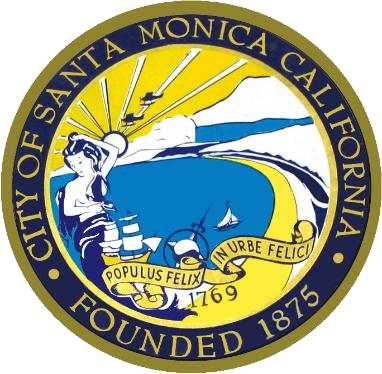 Santa Monica City Council passed new rules on August 9 for implementation of the city’s lobbyist regulation ordinance.
Santa Monica City Council passed new rules on August 9 for implementation of the city’s lobbyist regulation ordinance.
The rules set out lobbyist registration requirements and registration fees. The ordinance will go into effect September 19, 2016 with an initial lobbyist registration period from September 19 through October 31, 2016.
The City Clerk’s Office is responsible for the implementation of the lobbyist regulation ordinance and can be reached at (310) 458-8211 or clerk@smgov.net.
August 12, 2016 •
New Mexico Fixes Campaign Finance Website Glitch
During a spot check of campaign spending records, election officials realized a glitch in the database showed discrepancies between information searchable online and printable reports. Online, the purpose of some expenditures is omitted, for example. The glitch was discovered after […]
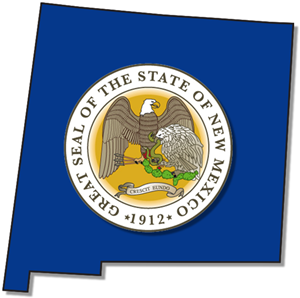 During a spot check of campaign spending records, election officials realized a glitch in the database showed discrepancies between information searchable online and printable reports. Online, the purpose of some expenditures is omitted, for example.
During a spot check of campaign spending records, election officials realized a glitch in the database showed discrepancies between information searchable online and printable reports. Online, the purpose of some expenditures is omitted, for example.
The glitch was discovered after an ethics complaint was filed against Republican candidate for secretary of state Nora Espinoza, relying on the system’s printable reports.
August 12, 2016 •
House Clerk’s Office Sends Out Late Notices to Lobbyists in Error
On August 11, the U.S. House clerk’s office erroneously sent out a group of emails to lobbyists informing them their contribution reports were late, according to the National Law Review. However, many of the registrants receiving the emails had timely […]
 On August 11, the U.S. House clerk’s office erroneously sent out a group of emails to lobbyists informing them their contribution reports were late, according to the National Law Review. However, many of the registrants receiving the emails had timely filed their 2016 Mid-Year LD-203 contribution reports, which were due August 1. The Review reports it is unclear how many late notices were sent in error. The House clerk’s office is aware of the error.
On August 11, the U.S. House clerk’s office erroneously sent out a group of emails to lobbyists informing them their contribution reports were late, according to the National Law Review. However, many of the registrants receiving the emails had timely filed their 2016 Mid-Year LD-203 contribution reports, which were due August 1. The Review reports it is unclear how many late notices were sent in error. The House clerk’s office is aware of the error.
August 12, 2016 •
NYCU Video Digest – August 12, 2016
Here is our latest edition of the News You Can Use Video Digest. Have a great weekend! NYCU Video Digest was produced by 2016 interns Brittany Anderson and Clémence Besnard for State and Federal Communications.
Here is our latest edition of the News You Can Use Video Digest. Have a great weekend!
NYCU Video Digest was produced by 2016 interns Brittany Anderson and Clémence Besnard for State and Federal Communications.
August 12, 2016 •
MA Gov. Signs Campaign Finance Bill
On August 9, Massachusetts Gov. Charlie Baker signed House Bill 543 into law, joining other recently signed bills helping to tweak the state’s current campaign finance laws. The new legislation allows for individuals to make addition political contributions of up […]
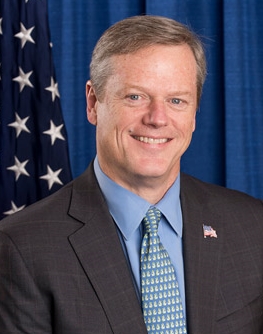 On August 9, Massachusetts Gov. Charlie Baker signed House Bill 543 into law, joining other recently signed bills helping to tweak the state’s current campaign finance laws. The new legislation allows for individuals to make addition political contributions of up to $1,000 to House and Senate candidates in special election races held during state election years.
On August 9, Massachusetts Gov. Charlie Baker signed House Bill 543 into law, joining other recently signed bills helping to tweak the state’s current campaign finance laws. The new legislation allows for individuals to make addition political contributions of up to $1,000 to House and Senate candidates in special election races held during state election years.
Another change in the law requires a PAC or political party committee making an expenditure to support or oppose a candidate to identify the candidate on the check and subsequently review the bank’s report. If the report does not identify the candidate supported or opposed, the PAC or political party committee must append the bank’s report to disclose the name of the candidate and whether the expenditure supported or opposed the candidate.
The state’s legal requirement to disclose the top five donors on certain political advertisements now includes those on billboards and direct mailings regardless of the purpose for which the funds were given. This disclosure requirement also applies to state ballot committees. The legislation came into effect upon signing.
August 12, 2016 •
News You Can Use Digest – August 12, 2016
National: The Crusade of a Democratic Superlawyer with Multimillion-Dollar Backing Washington Post – Robert Barnes | Published: 8/7/2016 Marc Elias, a go-to lawyer for Democrats in recount fights and redistricting battles, has now taken a prominent and somewhat controversial place among […]

National:
The Crusade of a Democratic Superlawyer with Multimillion-Dollar Backing
Washington Post – Robert Barnes | Published: 8/7/2016
Marc Elias, a go-to lawyer for Democrats in recount fights and redistricting battles, has now taken a prominent and somewhat controversial place among the coalition of groups challenging a wave of state election laws that were rewritten in recent years. With a multimillion-dollar commitment from George Soros, Elias is challenging laws that, he argues, diminish the impact of important Democratic Party constituencies of African Americans, Latinos, and young people. The states say they are seeking to combat voter fraud and protect confidence in the electoral process. But in the past month, a long list of judges, appointed by both Democrats and Republicans, have found the threat either negligible or nonexistent. Instead, the judges said, there is evidence the laws hinder minority participation in the process.
Federal:
How Think Tanks Amplify Corporate America’s Influence
New York Times – Eric Lipton and Brooke Williams | Published: 8/7/2016
Think tanks have power in government policy debates because they are seen as researchers independent of moneyed interests. But in the chase for funds, think tanks are pushing agendas important to corporate donors, at times blurring the line between researchers and lobbyists. And they are doing so while reaping the benefits of their tax-exempt status, sometimes without disclosing their connections to corporate interests. On issues as varied as military sales to foreign countries, international trade, highway management systems, and real estate development, think tanks have frequently become vehicles for corporate influence and branding campaigns.
Think Tank Scholar or Corporate Consultant? It Depends on the Day
New York Times – Eric Lipton, Nicholas Confessore, and Brooke Williams | Published: 8/8/2016
The New York Times found an array of researchers at think tanks who had simultaneously worked as registered lobbyists, members of corporate boards, or outside consultants in litigation and regulatory disputes with only intermittent disclosure of their dual roles. With their expertise and authority, think tank scholars offer themselves as independent arbiters. But the analysis identified examples of scholars conducting research while corporations were paying them to help shape government policy. Many think tanks also confer “nonresident scholar” status on lobbyists, former government officials, and others who earn their primary living working for private clients. Largely free from disclosure requirements, the researchers’ work is often woven into elaborate corporate lobbying campaigns.
Trump’s Long Dalliance with Violent Rhetoric
Politico – Michael Crowley | Published: 8/10/2016
Even before Donald Trump’s remark that “Second Amendment people” might stop Hillary Clinton’s Supreme Court appointments, his associates and supporters had repeatedly called for violence against Clinton and Barack Obama, while right-wing leaders and militia groups that support Trump speak of an armed response to federal gun control efforts. Trump’s campaign said his remark was merely a call for gun owners to vote against Clinton this fall. But Democrats said Trump had, at a minimum, made a horribly ill-advised joke about mounting armed resistance. Some analysts said whatever Trump’s intended meaning, the comment was dangerous in a campaign already colored by violence, from assaults on protesters at Trump rallies to talk of rebellion and civil war among his far-right supporters.
From the States and Municipalities:
Alabama – How the University of Alabama System Funneled $1.4 Million Through a ‘Dark Money’ Web
AL.com – Connor Sheets | Published: 8/7/2016
Established and managed by current and former University of Alabama System officials, the Alabama Association For Higher Education operates outside public view as a “dark money” nonprofit. By funneling more than $1.4 million through the group, the UA System has been able to influence state government without illegally donating directly to candidates or having to report its spending on campaign finance disclosures. It is an approach that experts describe as either unique among the nation’s universities or the local representation of a growing but unnoticed national trend.
California – ‘It Became a Price War’: Signature gatherers rake in top dollar with crowded field of ballot initiatives
Los Angeles Times – Christine Mai-Duc | Published: 8/9/2016
Some individuals in California have benefited from what consultants and petition-gathering firms are calling an unprecedented year in the signature business. The number of initiatives circulated combined with the top dollar that many campaigns were willing – or, in some cases, forced – to pay to get them qualified for the November ballot has surprised veterans of the craft. Angelo Paparella, president of National Petition Management, one of the biggest firms managing the signature-gathering process for statewide campaigns, and his competitors, who often deal directly with campaign consultants, usually employ petition coordinator firms and contractors, who in turn recruit, train, and manage street teams of signature gatherers. Carl Towe, who owns one such coordinating firm, said he has never seen pay like this in the 30 years he has worked in the field.
California – Santa Monica Lobbyists Required to Register with City Hall
Santa Monica Daily Press – Matthew Hall | Published: 8/11/2016
The Santa Monica City Council passed new rules that will require lobbyists to register and report their activities. Registration opens September 19 and all lobbyists will have to register within 10 days of any lobbying activity or by October 31, whichever is first. The fees are $40 for initial registration and $25 for amendments and annual renewal.
California – The Coliseum Case is the Latest Embarrassment for D.A.’s Corruption Unit
Los Angeles Times – Paul Pringle and Rong-Gong Lin II | Published: 8/6/2016
A case that grew out of a Los Angeles Times investigation in 2011 has become the latest embarrassment for the Los Angeles County district attorney’s office, which had already racked up a number of missteps in other high-profile, government corruption prosecutions. Two concert promoters accused in a bribery-and-embezzlement scheme involving raves at the Los Angeles Memorial Coliseum will avoid serving any jail time under a plea bargain with prosecutors who acknowledged they mishandled evidence in the high-profile corruption case. Boston College Law School professor George Brown said the district attorney’s office, like other county prosecution agencies, might be better off leaving public corruption cases to their federal counterparts.
Connecticut – Documents: Feds’ interest in Democrats’ Malloy fundraising predated 2014 election
Hartford Courant – Jon Lender | Published: 8/9/2016
The federal investigation into Connecticut Gov. Dannel Malloy’s re-election campaign began even before Election Day 2014, emails between the U.S. attorney’s office and the State Elections Enforcement Commission (SEEC) show. The emails indicate federal prosecutors contacted the SEEC at around the time that Republicans first filed a complaint alleging Malloy and state Democrats were trying to circumvent the Connecticut’s clean election law. A grand jury has been meeting to examine the Democrats’ fundraising since late April and has a subpoenaed contractors and state Democratic staffers.
Hawaii – How Ethics Commission Upheaval Is Playing Out in The Mayor’s Race
Honolulu Civil Beat – Nick Grube | Published: 8/8/2016
Mayoral candidates Charles Djou and Peter Carlisle have been sharpening their attacks in the weeks leading up to the August 13 primary, saying Honolulu Mayor Kirk Caldwell does not care about ethics in government. Over the past several months, the city Ethics Commission has seen its longtime executive director, Chuck Totto, resign under pressure and its sole investigator quit while protesting the heavy-handed management practices of the political appointees who oversee the agency. Ethics investigations have lapsed, and the commission now finds itself fighting to maintain its credibility in an environment in which citizens across the country are becoming increasingly mistrustful of their government.
Illinois – Judge Denies Blagojevich’s Bid to Lighten 14-Year Sentence
ABC News – Michael Tarm (Associated Press) | Published: 8/9/2016
A federal judge resentenced former Illinois Gov. Rod Blagojevich to 14 years in prison for his corruption conviction, reaffirming the decision originally handed down more than four years ago. Blagojevich won a chance at resentencing after an appellate court vacated five of 18 charges related to a scheme in which he tried to use his power as governor to extract favors and campaign money from other politicians. The former governor had requested the judge to reduce his sentence to five years in prison. Prosecutors called on U.S. District Court Judge James Zagel to keep the 14-year prison term in place, arguing Blagojevich did not deserve leniency, noting his corruption eroded trust in public officials.
Missouri – Contribution Limits, Tobacco Tax Increase Gain Enough Signatures to Appear on Missouri Ballot
Kansas City Star – Jason Hancock | Published: 8/9/2016
Secretary of State Jason Kander certified four ballot initiatives to go before voters in November, including two a limit on campaign contributions. The effort to reinstall contribution limits would amend the state constitution to cap donations to statewide candidates at $2,600. It also seeks to ban political committees from obscuring the source of their money, a tactic that has become more prevalent in recent years.
New York – Cuomo Cabinet Boat Trip Highlights Campaign Finance Law Concerns
Gotham Gazette – David Howard King | Published: 8/11/2016
The highest ranking members of Gov. Andrew Cuomo’s administration recently boarded a boat in Columbia County and embarked for New York City. It was formally called a cabinet retreat, and the stated purposes for the trip was government related, separate from any strategizing for Cuomo’s 2018 re-election bid. And yet the administration says the cost of the boat trip was paid from the governor’s campaign funds. The use of campaign money to pay for government staff to take a working field trip appears to be completely legal under the state’s campaign finance law, but critics of the system say the law is too loose. Those who want to see reform say the current system allows elected officials to take in significant donations, including from entities with government business, and enhance their lifestyles by paying for extravagant meals, cars, and trips.
New York – Sparks at JCOPE Over Retroactive Donor Disclosure
Albany Times Union – Chris Bragg | Published: 8/9/2016
The Joint Commission on Public Ethics (JCOPE) passed regulations that will govern the state’s lobbying disclosure rules should New York Gov. Andrew Cuomo sign an ethics reform package, as expected. Under current law, issue-oriented lobbying groups designated as 501(c)(4)s that spend more than $50,000 annually on lobbying must report donors of more than $5,000. The new law would lower those limits to capture groups that spend just $15,000 a year, and require their disclosure of donors of more than $2,500. Under the revised rules, the new, lower contribution limits would apply to donations and lobbying spending between July and December of this year, assuming Cuomo signs the bill.
Tennessee – Tennessee Lawmaker Convicted of Felony Tax Fraud
ABC News; Associated Press – | Published: 8/8/2016
A federal jury found Tennessee Rep. Joe Armstrong guilty on one count of filing a false tax return and an acquitted him on two other related felonies. Armstrong made roughly $321,000 when he used tobacco wholesaler Tru Wholesale to buy cigarette tax stamps for him at the 2006 rate of 20 cents per pack and then sell them after a 42-cent hike went into effect in 2007. Armstrong voted for the tax hike. It was not a crime for Armstrong to profit from a law on which he voted, nor was it a crime for Tru Wholesale owners Boyd Wyatt and Roger Cox to cut Armstrong in on the deal to hoard tax stamps until the hike went into effect. Hiding the money from the IRS, however, is criminal.
 State and Federal Communications produces a weekly summary of national news, offering more than 60 articles per week focused on ethics, lobbying, and campaign finance.
State and Federal Communications produces a weekly summary of national news, offering more than 60 articles per week focused on ethics, lobbying, and campaign finance.
August 11, 2016 •
JCOPE Extends Lobbyist Amnesty Program
The New York Joint Commission on Public Ethics has extended the deadline for the lobbyist amnesty program through September 30. The program is meant to encourage nonfiling lobbyists and employers to comply with the Lobbying Act by disclosing activity, as […]
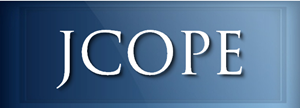 The New York Joint Commission on Public Ethics has extended the deadline for the lobbyist amnesty program through September 30. The program is meant to encourage nonfiling lobbyists and employers to comply with the Lobbying Act by disclosing activity, as required by law.
The New York Joint Commission on Public Ethics has extended the deadline for the lobbyist amnesty program through September 30. The program is meant to encourage nonfiling lobbyists and employers to comply with the Lobbying Act by disclosing activity, as required by law.
The program remains open only to those who have never been contacted by JCOPE for noncompliance with filing requirements and have never been the subject of a criminal proceeding for a Lobbying Act violation. The parallel New York City program was not extended.
Two House district special elections will take place on November 8, 2016. Gov. Phil Bryant announced elections for House Districts 89 and 106 will coincide with the general election. The District 89 seat became vacant when state Rep. Bobby Shows […]
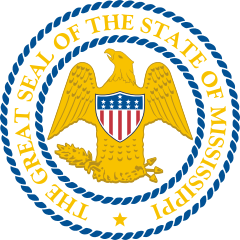 Two House district special elections will take place on November 8, 2016. Gov. Phil Bryant announced elections for House Districts 89 and 106 will coincide with the general election.
Two House district special elections will take place on November 8, 2016. Gov. Phil Bryant announced elections for House Districts 89 and 106 will coincide with the general election.
The District 89 seat became vacant when state Rep. Bobby Shows retired.
State Rep. Herb Frierson left his District 106 seat to become commissioner of revenue.
If no candidate receives a majority on November 8, a runoff election will be held November 29.
August 11, 2016 •
Reno, NV Charter Committee Recommends Lobbying Law
On August 10, the Reno, Nevada City Council and the City Charter Committee met to discuss a possible new lobbying law. The City Charter Committee recommended adding a new lobbying law to the city charter unless the City Council passes […]
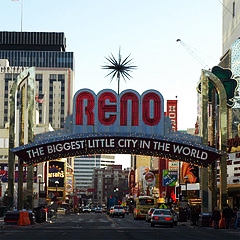 On August 10, the Reno, Nevada City Council and the City Charter Committee met to discuss a possible new lobbying law.
On August 10, the Reno, Nevada City Council and the City Charter Committee met to discuss a possible new lobbying law.
The City Charter Committee recommended adding a new lobbying law to the city charter unless the City Council passes a lobbying law through an ordinance before this fall’s November general election. While the City Council considered adopting an ordinance earlier this year, the Charter Committee “feels that the remaining three months until the general election is ample time for Council to formally approve a lobbyist registration system,” according to the Charter Committee’s Final Report and Recommendations presented at the meeting.
Also addressed at the meeting were the filing frequency of campaign finance reports by candidates for public office; ward-only voting for primary, general, and special elections; and other city issues.
August 11, 2016 •
Thursday News Roundup
Lobbying “How Think Tanks Amplify Corporate America’s Influence” by Eric Lipton and Brooke Williams for New York Times Florida: “County Ballot Measure on Campaign Finance Delayed to 2018” by Douglas Hanks for Miami Herald Campaign Finance “Facebook May Soon Have […]
 Lobbying
Lobbying
“How Think Tanks Amplify Corporate America’s Influence” by Eric Lipton and Brooke Williams for New York Times
Florida: “County Ballot Measure on Campaign Finance Delayed to 2018” by Douglas Hanks for Miami Herald
Campaign Finance
“Facebook May Soon Have More Power Over Elections Than The FEC. Are We Ready?” by Nathaniel Persily for Washington Post
Missouri: “Contribution Limits, Tobacco Tax Increase Gain Enough Signatures to Appear on Missouri Ballot” by Jason Hancock for Kansas City Star
Ethics
“Emails Renew Questions About Clinton Foundation and State Dept. Overlap” by Eric Lichtblau for New York Times
New Jersey: “Christie Rejects Claim He Lied about Bridgegate” by Dustin Racioppi and Bob Jordan for Asbury Park Press
Elections
“Donald Trump Suggests ‘Second Amendment People’ Could Act Against Hillary Clinton” by Nick Corasaniti and Maggie Haberman for New York Times
California: “‘It Became a Price War’: Signature gatherers rake in top dollar with crowded field of ballot initiatives” by Christine Mai-Duc for Los Angeles Times
Wisconsin: “In Wisconsin, a Controversial Voter ID Law Could Help Choose the President” by Matt Zapotosky for Washington Post
Legislative Issues
California: “California High Court Says Legislators’ Votes Are Protected by Free Speech Rights” by Maura Dolan for Los Angeles Times
A special primary election will be held on September 13, 2016, to fill a general election ballot vacancy for Ohio’s 8th Congressional District. Democratic nominee Corey Foister withdrew from the race to pursue an out-of-state opportunity he said he couldn’t […]
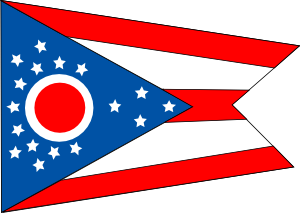 A special primary election will be held on September 13, 2016, to fill a general election ballot vacancy for Ohio’s 8th Congressional District.
A special primary election will be held on September 13, 2016, to fill a general election ballot vacancy for Ohio’s 8th Congressional District.
Democratic nominee Corey Foister withdrew from the race to pursue an out-of-state opportunity he said he couldn’t pass up.
Steven Fought, a former congressional staffer from Toledo, was the only Democrat to file for the special election ballot. In November, he will challenge recently elected Republican U.S. Rep. Warren Davidson for the seat in former House Speaker John Boehner’s district. Davidson won a June 7 special election to complete Boehner’s term and is seeking a full term in November.
August 10, 2016 •
Connecticut Gov. Wants to Cut Budgets Amid Investigations
Gov. Dannel Malloy’s administration announced they are cutting the budgets for the state’s watchdog agencies. The Office of State Ethics, the Freedom of Information Commission, and the State Elections Enforcement Commission will be subject to shrinking budgets at a time […]
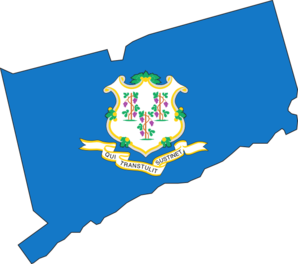 Gov. Dannel Malloy’s administration announced they are cutting the budgets for the state’s watchdog agencies. The Office of State Ethics, the Freedom of Information Commission, and the State Elections Enforcement Commission will be subject to shrinking budgets at a time when the governor’s office is facing investigations from two of the agencies.
Gov. Dannel Malloy’s administration announced they are cutting the budgets for the state’s watchdog agencies. The Office of State Ethics, the Freedom of Information Commission, and the State Elections Enforcement Commission will be subject to shrinking budgets at a time when the governor’s office is facing investigations from two of the agencies.
Just months ago, Malloy’s administration stated the agencies would not face cuts, but reversed its position soon after the Office of State Ethics voted to investigate the administration’s hiring of a former lobbyist to lead the regulatory review of a former client’s proposed merger. The timing has led to talk of the cuts being a form of retribution.
The State Elections Enforcement Commission also just levied a $325,000 penalty against Malloy’s state Democratic Party for pay-to-play violations, the subject of a new federal grand jury investigation. Heads of the agencies argue, however, the cuts are illegal under a 2004 law meant to prevent unilateral action by the governor.
August 10, 2016 •
Missouri Gubernatorial Candidate Supports Proposed Limits on Campaign Contributions
Missouri gubernatorial candidate Chris Koster has thrown his support behind a November ballot initiative aimed at reinstating campaign contributions limits. While he served in the state Senate, Koster voted twice to remove the limits and has since opposed multiple attempts […]
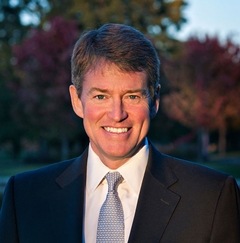
Missouri gubernatorial candidate Chris Koster has thrown his support behind a November ballot initiative aimed at reinstating campaign contributions limits.
While he served in the state Senate, Koster voted twice to remove the limits and has since opposed multiple attempts to reinstate them. He claims his change of heart is a result of a shift in the way Missouri campaigns are funded.
A decade ago, there were few, if any, large contributions; he believed removing limits would improve transparency. Now, however, it is not uncommon to see seven-figure contributions funneling through committees, with no mechanism to effectively identify the original contributors.
The proposed ballot measure would ban direct corporate and labor union contributions and limit individual and committee contributions to statewide candidates to $2,600 per election. Contributions to political parties would be capped at $25,000 per election.
The measure was certified for the November ballot, but still must overcome a legal challenge.
State and Federal Communications, Inc. provides research and consulting services for government relations professionals on lobbying laws, procurement lobbying laws, political contribution laws in the United States and Canada. Learn more by visiting stateandfed.com.


